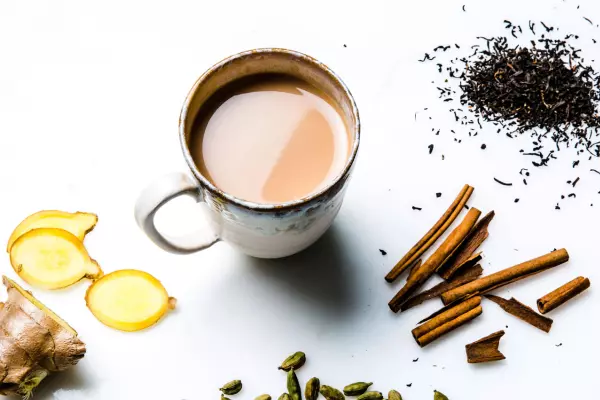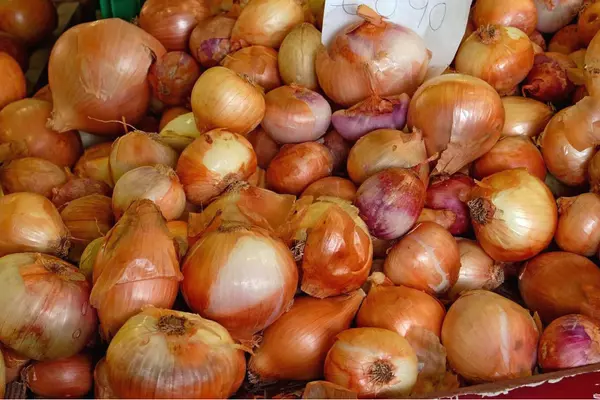Are you looking for a soothing and rejuvenating drink that not only satisfies your taste buds but also offers numerous health benefits? Look no further than the Yogi Tea recipe!
This delightful herbal beverage, also known as “chai tea,” has been enjoyed for centuries due to its unique blend of spices and therapeutic properties.
In this article, we will delve into the art of preparing Yogi Tea recipe, explore its rich history, and uncover its many health advantages. So grab your favorite mug and get ready to embark on a flavorful journey!
Yogi Tea Recipe
Recipe Details:
- Preparation Time: 5 minutes
- Cooking Time: 20 minutes
- Yield: 4 servings
Ingredients:
- 4 cups water
- 2 black tea bags or 2 tablespoons of loose black tea
- 1-inch fresh ginger, sliced
- 2 cinnamon sticks
- 6 cardamom pods, lightly crushed
- 4 cloves
- 4 black peppercorns
- 1 cup milk (or dairy-free alternative)
- Sweetener of your choice (optional)
Instructions:
- In a medium-sized pot, bring the water to a boil.
- Add the black tea bags or loose black tea to the boiling water.
- Reduce the heat to low and add the ginger, cinnamon sticks, cardamom pods, cloves, and black peppercorns to the pot.
- Simmer the mixture uncovered for 15-20 minutes to allow the flavors to infuse.
- Add the milk to the pot and continue to simmer for a few more minutes.
- Remove the pot from the heat and strain the tea into cups or mugs.
- If desired, sweeten the tea with your preferred sweetener, such as honey or maple syrup.
- Stir well and serve hot.
Enjoy your comforting and flavorful cup of Yogi Tea!

Nutrition Facts Per Serving:
- Calories: 32
- Total Fat: 1g
- Cholesterol: 3mg
- Sodium: 28mg
- Total Carbohydrate: 4g
- Sugars: 2g
- Protein: 2g
Note: Nutritional values are approximate and may vary depending on the specific ingredients used.
Health Benefits Of Yogi Tea
Yogi Tea offers a myriad of health benefits, making it more than just a tasty beverage. Here are some of the potential advantages of incorporating Yogi Tea into your daily routine:
- Digestive Support: The blend of ginger, cardamom, and cinnamon in Yogi Tea can help soothe digestive discomfort and improve digestion.
- Immune Boost: Yogi Tea contains ingredients like black tea and spices, which are rich in antioxidants that support a healthy immune system.
- Anti-Inflammatory Properties: The spices in Yogi Tea, such as ginger and cinnamon, possess anti-inflammatory properties that may help reduce inflammation in the body.
- Relaxation Aid: Sipping a warm cup of Yogi Tea can promote relaxation, reduce stress, and calm the mind after a long day.
- Weight Management: Yogi Tea’s natural ingredients can aid in weight management by boosting metabolism and reducing cravings.
- Heart Health: Certain components in Yogi Tea, such as black tea and cinnamon, have been linked to promoting heart health and maintaining healthy blood pressure levels.
How To Customize Yogi Tea?
One of the great aspects of Yogi Tea is its versatility. While the traditional recipe is delightful on its own, you can also customize it to suit your personal preferences. Here are a few ideas for personalizing your Yogi Tea:
- Sweetness Level: Adjust the amount of sweetener to achieve your desired taste. You can use honey, maple syrup, or stevia as alternatives to refined sugar.
- Milk Choices: Experiment with different types of milk or non-dairy alternatives like almond milk, coconut milk, or oat milk to find the one that complements your taste buds.
- Extra Spices: Feel free to add extra spices like nutmeg, allspice, or star anise to enhance the flavor profile of your Yogi Tea.
- Herbal Additions: Infuse your Yogi Tea with additional herbs like lavender, chamomile, or mint to create a unique blend that suits your mood and preferences.
Yogi Tea Variations
While the classic Yogi Tea recipe is well-loved, there are also various delightful variations to explore. Here are a few popular Yogi Tea variations you can try:
- Yogi Green Tea: Replace the black tea with green tea for a lighter and more refreshing version of Yogi Tea.
- Yogi Rooibos Tea: Use rooibos tea instead of black tea to create a caffeine-free and antioxidant-rich Yogi Tea.
- Yogi Turmeric Tea: Add a teaspoon of turmeric powder to the recipe for an extra boost of anti-inflammatory properties and earthy flavor.
- Yogi Masala Chai: Increase the number of spices and use loose-leaf black tea for a bolder and spicier Yogi Tea experience.
Conclusion
The Yogi Tea recipe is a delightful and healing beverage that combines flavorful spices and aromatic herbs.
With its rich history, unique blend of ingredients, and numerous health benefits, Yogi Tea recipe has become a beloved choice for tea enthusiasts worldwide.
By preparing and savoring a cup of Yogi Tea, you not only indulge in a delicious drink but also nourish your body and promote overall well-being.

Yogi Tea Recipe: A Delicious And Healing Beverage
Ingredients
- 4 cups water
- 2 black tea bags or 2 tablespoons of loose black tea
- 1- inch fresh ginger sliced
- 2 cinnamon sticks
- 6 cardamom pods lightly crushed
- 4 cloves
- 4 black peppercorns
- 1 cup milk or dairy-free alternative
- Sweetener of your choice optional
Instructions
- In a medium-sized pot, bring the water to a boil.
- Add the black tea bags or loose black tea to the boiling water.
- Reduce the heat to low and add the ginger, cinnamon sticks, cardamom pods, cloves, and black peppercorns to the pot.
- Simmer the mixture uncovered for 15-20 minutes to allow the flavors to infuse.
- Add the milk to the pot and continue to simmer for a few more minutes.
- Remove the pot from the heat and strain the tea into cups or mugs.
- If desired, sweeten the tea with your preferred sweetener, such as honey or maple syrup.
- Stir well and serve hot.
- Jet’s Ranch Recipe: Make The Famous Dip At Home - April 12, 2025
- James Hemings Macaroni And Cheese Recipe – History On A Plate - April 3, 2025
- French Dip Squares Recipe – Better Than A Sandwich! - March 25, 2025


